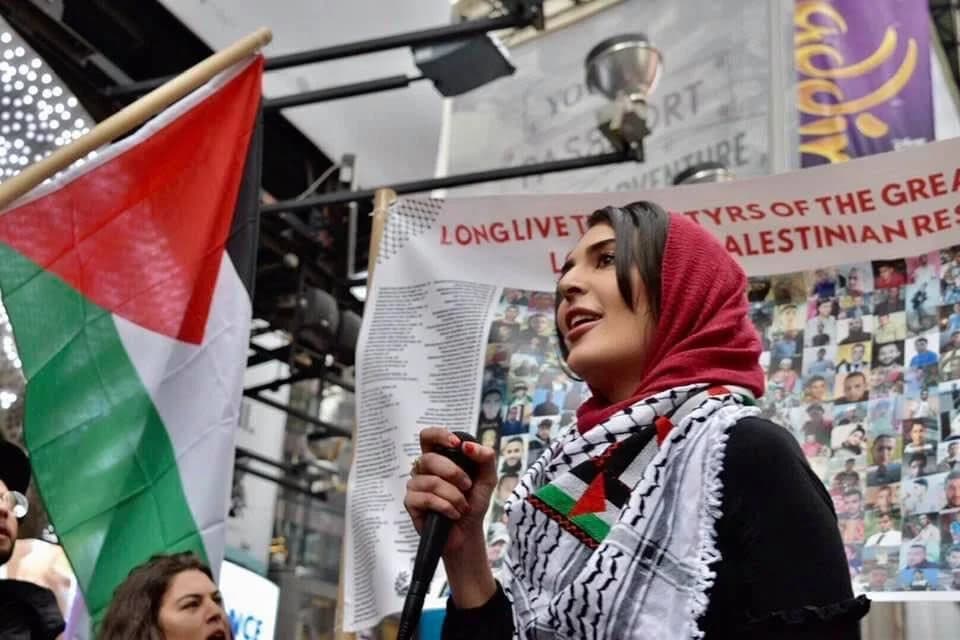Debate Intensifies Over Protests Near Houses of Worship as Activist Nerdeen Kiswani Draws Scrutiny

Online discourse has recently highlighted the contentious issue of protests near religious institutions, with prominent Palestinian-American activist Nerdeen Kiswani becoming a focal point of criticism. A recent social media post by "Long Way" stated, > "Do whatever you want in the shithole country your parents crawled out of. Here in America we don’t scream at people outside their churches or synagogues." This statement underscores ongoing tensions surrounding activist demonstrations and online rhetoric.
Nerdeen Kiswani is widely recognized as a leading figure in the pro-Palestinian movement, particularly in New York City. She is the founder of the organization Within Our Lifetime (WOL) and has been associated with Students for Justice in Palestine (SJP) chapters. Her activism, which advocates for Palestinian rights and critiques Israeli policies, has frequently drawn both strong support and significant controversy.
Kiswani's involvement in protests has included demonstrations near synagogues, notably an incident in 2021 where she reportedly led chants outside a Brooklyn synagogue. These actions have drawn condemnation from various groups, who perceive them as antisemitic or harassing to Jewish communities. Kiswani and her supporters have consistently denied allegations of antisemitism, maintaining that their protests are directed at Israeli policies and Zionism, not Jewish people.
The broader context reveals a growing national debate in the United States concerning protests outside churches, synagogues, and mosques. These demonstrations, often linked to highly charged political and social issues like the Israeli-Palestinian conflict, raise complex questions about the boundaries between protected free speech and potential harassment. Legal experts and community leaders are grappling with how to balance constitutional rights with the safety and sanctity of religious spaces.
Activists like Kiswani frequently face intense scrutiny and backlash for their advocacy, including personal attacks and online harassment. The recent tweet exemplifies the often-contentious environment surrounding pro-Palestinian activism, where public statements can quickly escalate into heated exchanges and accusations. This ongoing dynamic highlights the challenges of navigating public discourse in politically polarized times.